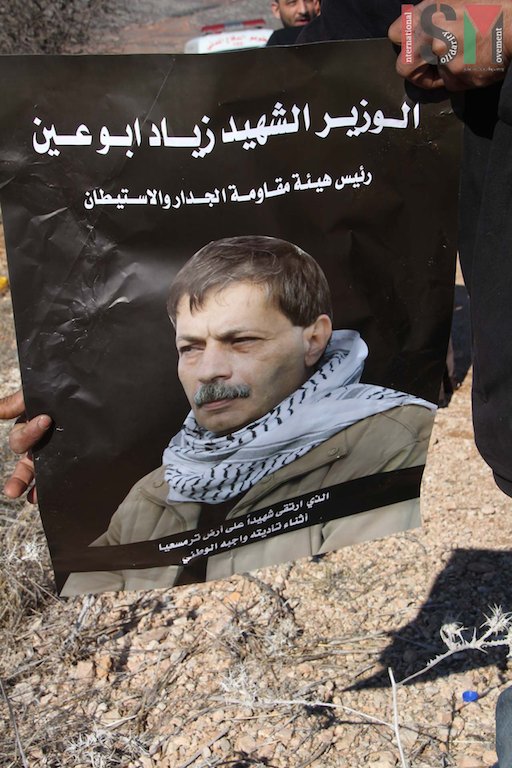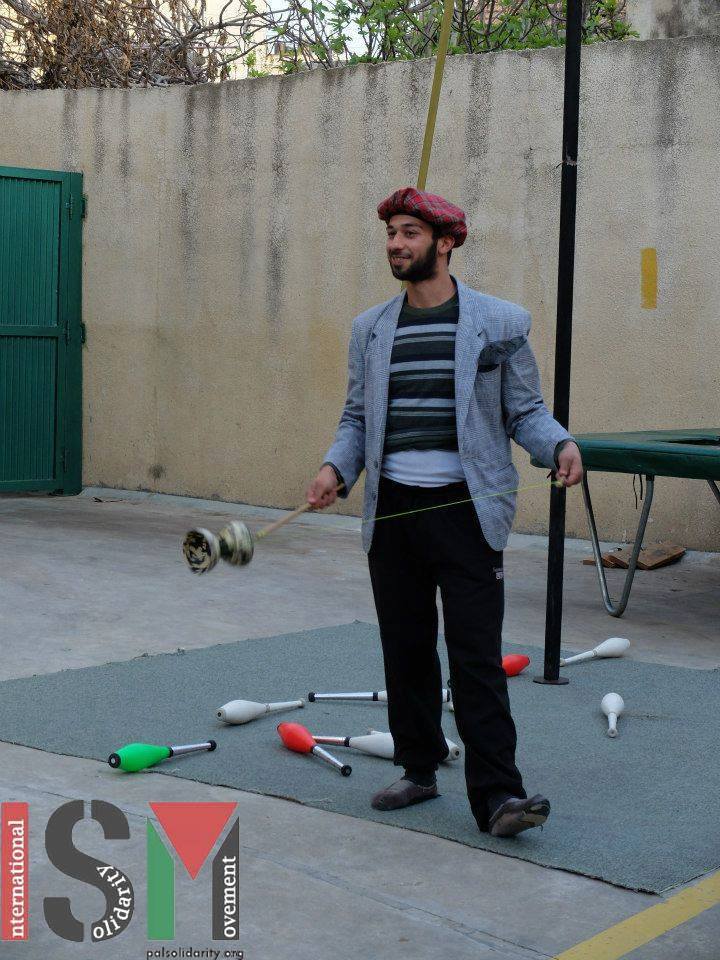-
Remembering Ziad Abu Ein
13th December 2016 | International Solidarity Movement, Huarra team | occupied Palestine Ziad Abu Ein- 22-11-1959/10-12-2014 On December 9th,2016, hundreds of people gathered in the small village of Turmas Ayya, north of Ramallah, to commemorate the death of Ziad Abu Ein, a high profile Palestinian politician, Minister and Fatah leader, who died after inhaling […]
-
Free Mohamed Abu Sakha
5th December 2016 | International Solidarity Movement | Huwwara team, occupied Palestine Members of the Circus School in Palestine, representatives of the embassies of Italy, Spain and Switzerland, Amnesty International and ISM were in the Israeli Supreme Court today to witness the hearing of the appeal for the release of the Palestinian circus trainer Mohammad […]
-
After a good day comes a bad day
8th December 2016 | International Solidarity Movement, al-Khalil team | Hebron, occupied Palestine On 7th December 2016, Israeli forces at Shuhada checkpoint in occupied al-Khalil (Hebron) detained a group of teachers from nearby Qurtuba school, and then in collective punishment closed the checkpoint to everyone. Just after the teachers were finally allowed to reach their […]
Action Alert An Nabi Saleh Apartheid Wall Arrests BDS Bethlehem Bil'in Cast Lead Demonstration Denial of Entry Ethnic Cleansing Farmers Gaza Global Actions Hebron House Demolition International law Israeli Army Jerusalem Live Ammunition Nablus Ni'lin Prisoner Ramallah Rubber-coated steel bullets Settlement Settlers Settler violence Tear-Gas Canister Video



